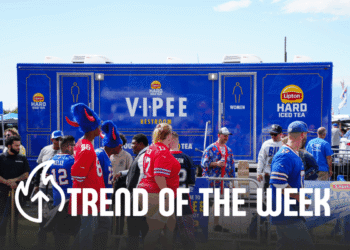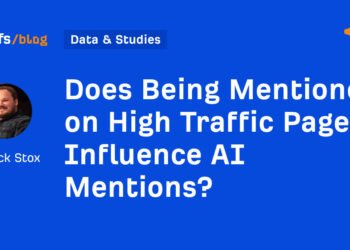10 Must-Have Features in an Event Management Tool
The success of any event depends largely on the technology that powers it. Today, selecting the right event management tool is not just a convenience but a strategic necessity. From streamlining event logistics to engaging attendees, the right event management software serves as the digital backbone that supports every stage of the event journey.
As event formats evolve, virtual, hybrid, and in-person, so do the expectations of organizers and attendees. A strong event management platform allows you to orchestrate complex operations, personalize experiences, and analyze performance, all from a centralized location. Moreover, in 2025, choosing the right event management tool isn’t about choosing software with flashy dashboards or trendy names. It’s about selecting a powerful, scalable, and easy-to-use solution that can handle everything from registration to engagement, analytics, and mobile access, all while offering strong security and adaptability.
This blog will walk you through the top features of event management software and give you the knowledge you need on what to look for in an event management tool that can serve you for years to come.
Why Features Matter More Than Ever
Planning an event today isn’t the same as it was five years ago. Now, you’re expected to host a professional, engaging, hybrid-ready, and mobile-friendly experience—all while staying on budget, providing value, and proving ROI. The pressure is real. So, how do you manage all these expectations? With the right event management platform.
So be it, organizing one annual conference or juggling multiple monthly webinars, a reliable event management tool can automate repetitive tasks, track real-time data, and centralize your efforts in one place. Instead of bouncing between platforms for registration, communication, check-in, and analytics, you get everything in one streamlined solution. Let’s now examine the essential features of event software you should demand from your tech in 2025.
1. Intuitive and Efficient User Interface
The best event management software starts with a clean, user-friendly design. If your team can’t navigate it quickly and confidently, you’ll waste valuable time learning the system instead of planning your event.
Your event management tool should include:
- Drag-and-drop tools to build agendas and workflows
- Clear navigation with logical grouping of tools
- Shortcut buttons for high-frequency actions
- Real-time alerts and dashboards that surface priority tasks
An intuitive interface also means that non-technical staff can be trained faster. With the best event planning software, you don’t need a background in tech or design to build a high-quality event experience. Everyone on your team should be able to use the platform comfortably, whether they’re setting up an agenda or checking lead data.
2. Robust Registration and Ticketing Customization
Your registration system needs to be more than just a form—it’s the digital front door to your event. High-performing event registration software allows you to tailor every aspect of that experience.
Look for an event management tool that supports:
- Conditional form fields based on attendee type
- Multi-currency and tax settings
- Tiered pricing for VIPs, early bird access, or bundles
- Waitlist management
- Mobile-optimized registration flow
- Payment integrations with PayPal, Stripe, Square, Apple Pay, and more
And don’t forget the importance of a hassle-free and easy-to-use event ticketing software. You should be able to automate ticket delivery, set limits per buyer, apply promo codes, and track ticket revenue in real time.
3. Automated Communication and Engagement Features
Engagement doesn’t start at the event. It begins the moment someone registers. Your event management software should include event engagement features that keep attendees informed, excited, and involved throughout the experience.
Here’s what your platform should offer:
- Personalized email confirmations, reminders, and updates
- SMS alerts for last-minute changes
- Push notifications via your event mobile app
- Live polls, surveys, and quizzes
- Interactive Q&A sessions
- Social media integrations with event hashtags and feeds
- Gamification tools like leaderboards and trivia
These tools keep your audience connected and provide valuable feedback you can use to adjust your strategy on the go. Today’s attendees expect more than content; they want to be part of the conversation.
4. Financial Control and Budget Tracking
Your event planning software should include an integrated budget management system that offers a crystal-clear view of where your money is going and what’s generating returns.
Your event management tool should allow:
- Custom budget templates for various event types
- Real-time expense vs. income comparisons
- Invoice and receipt uploads
- Sponsor ROI tracking
- Integration with accounting platforms like QuickBooks or Xero
This level of financial insight ensures you’re not overspending, underpricing, or missing revenue opportunities. And if you’re managing multiple events, it becomes vital to have consistent budget frameworks.
5. Smart Agenda Building and Scheduling Tools
Today’s attendees want choices, and your software must deliver them. A customizable event agenda gives attendees the freedom to build their own path.
Must-have features include:
- Multi-session, multi-track configuration
- Session filters by type, location, or interest
- Personalized bookmarking
- Real-time schedule updates and alerts
- Conflict warnings for double bookings
Behind the scenes, your event scheduling software should also track engagement per session, speaker performance, and attendance, all from the same dashboard.
6. Streamlined Event Check-In and Badge Printing
An efficient check-in process sets the tone for the entire event. With modern event check-in software, guests should be able to arrive, check in, and get their badges—all in less than a minute.
Look for an event management tool that includes:
- QR and barcode scanning
- Self-service check-in kiosks
- VIP fast-lane check-in
- Instant event badge printing with custom branding
- On-site event check-in status dashboards
A fast and professional entrance ensures a smooth experience and helps avoid bottlenecks at the venue.
7. Fully Integrated Mobile App
Having an event mobile app isn’t just a trend but a core component of the attendee experience. Your mobile app should mirror the web experience and offer even more on-the-go functionality.
Look for features like:
- Personalized session agenda
- Live session alerts
- Interactive venue maps
- Networking chat and appointment booking
- Gamified engagement through challenges or polls
- Sponsor pages and exhibitor lead forms
The best event management software will allow real-time sync between the desktop platform and your mobile app, ensuring a consistent and up-to-date experience for all users.
8. Virtual and Hybrid Event Compatibility
Virtual and hybrid events are no longer temporary solutions. They’re now critical event formats, and your platform should offer a complete virtual event platform and hybrid event software capabilities.
Key components to expect:
- Integrated livestreaming and webinar hosting
- On-demand session replay libraries
- Breakout room scheduling and management
- Virtual expo booths and one-on-one video meetings
- Chat, emoji reactions, and attendee presence indicators
- Gamification that works across in-person and virtual audiences
Your event management tool should allow remote and in-person attendees to engage with equal ease, creating an inclusive and immersive experience for all.
9. Smooth Third-Party Integrations
An isolated software system is a dead end. The best event management software is open, connected, and flexible. It should plug into your CRM, email marketing, finance, and productivity tools effortlessly.
Must-have event CRM integration options:
- Salesforce
- HubSpot
- Zoho
- ActiveCampaign
- Mailchimp
- Slack
- Microsoft Teams
- Zoom
- Trello
- Google Workspace and more
These integrations allow your data to flow freely between systems, creating a central hub that simplifies your team’s entire workflow.
10. Real-Time Analytics and Deep Reporting
You can’t improve what you don’t measure. That’s why event analytics tools should be built into every event management tool you evaluate.
Look for data like:
- Total registrations and drop-offs by source
- Attendance trends by session
- Sponsor and exhibitor engagement
- Mobile app usage metrics
- Live polling and survey feedback
- Session retention and exit rates
- Engagement with emails and notifications
All of these powers make smarter, faster decisions and ensure your next event is even better.
With real-time event insights, you’re not waiting until the event is over to understand what’s working; you’re reacting in the moment.
Bonus Features That Add Tremendous Value
While the core features of a strong event management tool set the foundation for success, the real power lies in the advanced tools that elevate your event from “well-run” to “industry-leading.” These are strategic drivers that give you a competitive edge, especially if you manage large-scale or recurring events. Below are the essential bonus features of event software that go beyond basic logistics and help you level up your events:
1. Lead Capture Tools with Built-In CRM Syncing
For B2B events, trade shows, expos, or any sponsor-heavy experience, lead capture tools are a must. These tools allow exhibitors and sales teams to scan badges, capture contact information, and qualify leads instantly at the booth.
But the real value? Integration.
With event CRM integration, the captured leads are automatically synced with your CRM system, whether it’s Salesforce, HubSpot, or Zoho. No more manual entry or lost business cards. Everything is stored, segmented, and ready for your post-event follow-up pipeline.
Advanced lead capture systems can also:
- Tag leads by product interest or engagement level
- Trigger automated nurture sequences
- Assign leads directly to sales reps
- Analyze which sessions or booths produced the highest ROI
For sponsors and exhibitors, this is gold. For organizers, it’s a measurable value-add.
2. Smart Event Automation Features
Why spend hours sending manual reminders or updating session info when your event management tool can handle it all in the background?
With built-in event automation features, you can create intelligent workflows that trigger based on specific behaviors or timelines. Examples include:
- Sending a confirmation email immediately after registration
- Notifying attendees of a room change 15 minutes before a session
- Pushing upsell offers for VIP upgrades to specific attendee segments
- Triggering follow-up emails based on session attendance
- Reminding attendees to complete surveys post-event
Automating these tasks doesn’t just save time, it ensures consistency, reduces errors, and keeps your audience engaged at the right moments.
3. Event Networking Tools that Match Attendees
Attendees no longer want to passively absorb content—they want to connect. That’s where event networking tools become game-changers.
These tools use attendee data, interests, industries, and behaviors to suggest smart matches, like “people you may want to meet.” Think of it as LinkedIn-style networking but within your event ecosystem.
With these tools, attendees can:
- Schedule 1:1 meetings via the event mobile app
- Join topic-based discussion groups
- Get real-time suggestions on who’s nearby with similar goals
- Exchange virtual business cards or QR codes
- Participate in speed networking events with curated pairings
Networking is one of the primary reasons people attend events. Facilitating meaningful connections dramatically increases attendee satisfaction and perceived value.
4. Post-Event Surveys with Sentiment Tracking
Gone are the days of basic feedback forms. Modern event management software now supports advanced post-event survey engines that include sentiment analysis and real-time insights.
These tools help you:
- Measure session ratings
- Identify top-performing speakers
- Detect frustration or delight in open comments
- Compare feedback across different attendee segments
- Benchmark NPS (Net Promoter Score) year over year
You can also track who completed the surveys and automate follow-ups to those who didn’t, improving your data collection rate.
Using AI-powered tools to analyze open-text responses provides a deeper understanding of attendee experience, allowing you to make smarter planning decisions for future events.
5. Event Feedback System That Auto-Generates Reports
A great event feedback system does more than just collect opinions—it transforms them into actionable insights.
Modern platforms now offer automatic report generation with visuals, charts, and recommendations. For example:
- A heatmap of session engagement over time
- A comparison between attendee satisfaction for in-person vs virtual sessions
- Drop-off points during a live session or virtual stream
- Response rates by attendee type (VIP, regular, speaker, sponsor)
- Sponsor feedback breakdown by booth traffic and lead quality
Having these reports generated automatically means your team can focus on strategy, not spreadsheets.
And if your event CRM integration is robust, this feedback can even influence your next marketing campaign or sales approach.
6. Attendee Heatmaps and Real-Time Event Tracking
Want to know which booths had the most foot traffic? Which areas of your venue got the most attention? Or when engagement dropped off during a keynote?
With attendee heatmaps and event attendee tracking, you get visual, data-driven insights that show you how attendees actually move and interact throughout your event.
Using badge scans, RFID chips, or Bluetooth beacons, these tools track:
- Session attendance patterns
- Booth dwell time
- Traffic flow through the venue
- App usage rates
- Check-in/check-out times
The result? You can optimize future layouts, fine-tune your schedule, and even charge premium prices for high-traffic sponsor spots, all backed by data.
7. Multi-Portal Dashboards for Multi-Event Management
If you’re managing more than one event or if your organization runs several conferences, expos, or training sessions across the year, you need software that supports multi-event management from one interface.
That’s where multi-portal dashboards come in.
With a unified view, you can:
- Switch between events without logging in/out
- Track registrations, budgets, and engagement side by side
- Assign teams to specific events
- Copy or clone successful templates
- Standardize branding and compliance
This is especially powerful for enterprise event teams, agencies, or franchises. You get full oversight without duplicating work. It’s operational efficiency, scaled.
11. Smart Business Matchmaking Capabilities
Networking is one of the top reasons people attend events, but random connections don’t always lead to meaningful outcomes. That’s where business matchmaking becomes a game-changer.
Modern event management software should include intelligent business matchmaking tools that connect attendees, exhibitors, and sponsors based on shared interests, goals, or profiles. This isn’t just speed networking—it’s curated, data-driven relationship building.
Look for features like:
- AI-powered attendee recommendations
- Smart filtering (industry, interests, job title, company size)
- Mutual interest indicators
- Meeting scheduling within the event mobile app
- Private messaging and video meeting capabilities
- Integration with event CRM integration tools for follow-ups
For B2B events, trade shows, expos, and investor meetings, business matchmaking helps attendees find the right people, not just any people. It turns your event into a platform for opportunity.
By offering business matchmaking in your event management platform, you increase attendee ROI, improve satisfaction, and create a more valuable experience for every stakeholder, from sponsors to startups.
Wrapping Up
Investing in the right event management tool is the smartest move any organizer can make. With the proper event management software, you unlock new levels of productivity, visibility, and engagement. From the first registration to the final feedback survey, your platform should work for you, silently powering every process, every insight, and every success.
In 2025, don’t settle for half-measures. Look for a platform that offers all the features above and positions you to adapt, grow, and lead in an ever-changing event landscape. Whether you’re planning one event or managing a full portfolio, the right event management platform makes all the difference.
Ready to elevate your events with the most powerful, all-in-one platform? Eventdex offers everything you need in a modern event management software, from customizable registration and real-time check-in to smart engagement tools, lead capture, and deep analytics. For more details, book a free demo today and see Eventdex in action!

















